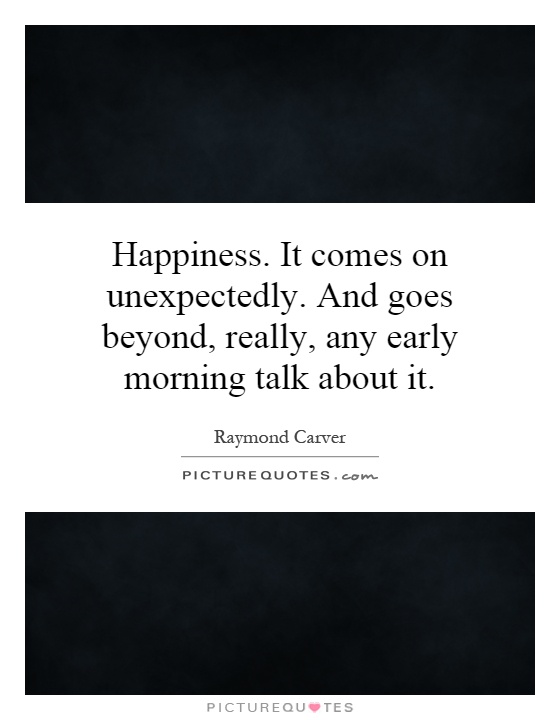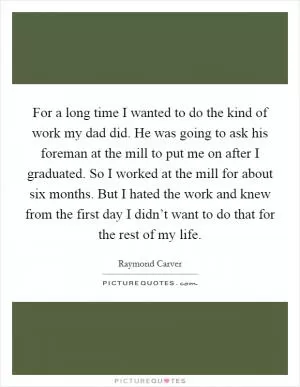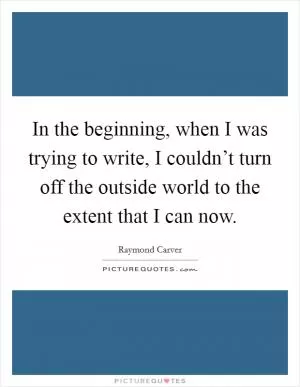Happiness. It comes on unexpectedly. And goes beyond, really, any early morning talk about it

Happiness. It comes on unexpectedly. And goes beyond, really, any early morning talk about it
Raymond Carver, a master of the short story genre, often explored themes of loneliness, despair, and the struggle for connection in his works. However, in his story "Happiness," Carver takes a slightly different approach by delving into the fleeting nature of joy and contentment.The opening line of the story, "Happiness. It comes on unexpectedly. And goes beyond, really, any early morning talk about it," sets the tone for the rest of the narrative. Carver suggests that happiness is not something that can be easily defined or predicted. It can arrive suddenly and without warning, catching us off guard and leaving us feeling both elated and bewildered.
The protagonist of the story, Jack, experiences a moment of happiness while sitting on his porch one morning. He is struck by the beauty of the world around him – the sunlight filtering through the trees, the sound of birds chirping in the distance, the smell of freshly cut grass. In that moment, Jack feels a sense of peace and contentment that he struggles to put into words.
As the story unfolds, however, we see that Jack's happiness is short-lived. He is soon confronted with the harsh realities of his life – his failing marriage, his strained relationship with his son, his own sense of inadequacy and regret. The fleeting moment of joy he experienced on the porch fades away, leaving him feeling empty and disillusioned.
Carver's exploration of happiness in this story is both poignant and thought-provoking. He reminds us that happiness is not a constant state of being, but rather a fleeting emotion that can come and go without warning. It is a reminder to appreciate the moments of joy and contentment in our lives, no matter how brief they may be.












 Friendship Quotes
Friendship Quotes Love Quotes
Love Quotes Life Quotes
Life Quotes Funny Quotes
Funny Quotes Motivational Quotes
Motivational Quotes Inspirational Quotes
Inspirational Quotes